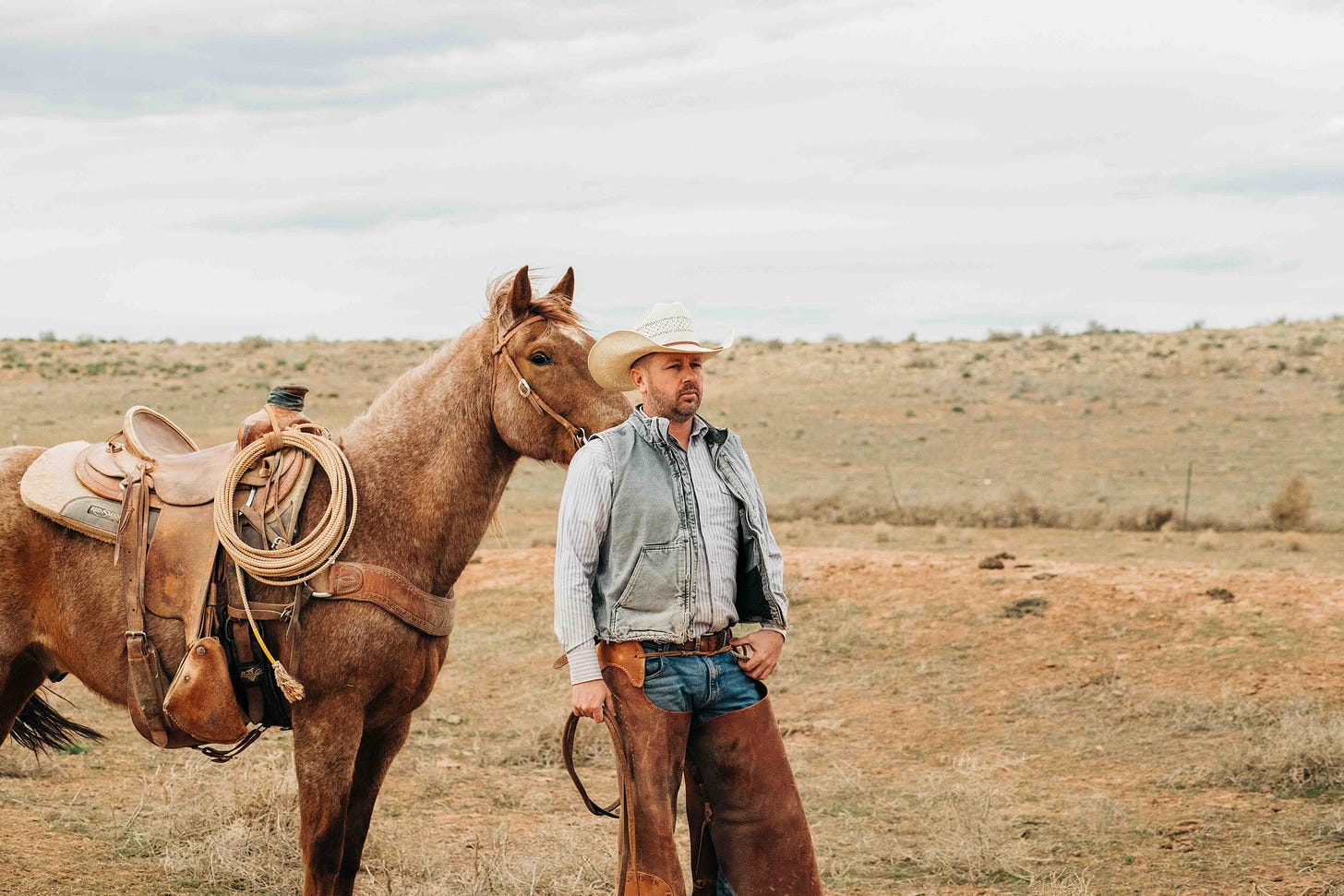The Cost of Conservation Shouldn’t Be the Death of Family Ranching
THE AUTOPEN TOOK THEIR RANCH... AND MANY OTHERS. "They only gave us 2 minutes to defend ourselves"
In a country built on the promise of hard work and land stewardship, the quiet backbone of the American West—the family rancher—is under siege. The very land these families have worked for generations is being signed away with the swipe of a presidential auto-pen.
Just ask Chris and Cassie Heaton.
Their ranch, part private, part leased from the federal government, has been stewarded by their family since the 1800s. With the stroke of President Biden's autopen in 2023, nearly one million acres of land—including much of what the Heatons depend on—was designated a national monument: the "Ancestral Footprints of the Grand Canyon." (New York Post)
A Monument Built on Displacement
There was one public hearing. Two minutes to speak. Chris Heaton was booed for trying to defend his family's legacy and livelihood.
The Antiquities Act of 1906, originally created to protect irreplaceable natural and historical treasures, has become a political weapon. It allows presidents to unilaterally designate federal land as a national monument, bypassing environmental review, economic impact studies, or real public input. The law calls for the "smallest area compatible" with preservation. Yet Biden’s proclamation exceeded 150,000 acres more than Yosemite, swallowing up grazing land without any compensation.
Why This Matters to You
This isn’t just about one ranch. Dozens of ranches in Arizona, Utah, and California have been impacted. And when these ranchers lose land, you lose food security.
Public lands aren't "free rides" for ranchers. They're leased and regulated, often improving wildlife access, water infrastructure, and wildfire mitigation. When ranchers are pushed off the land, forests grow overcrowded and dry, and taxpayers foot the bill for what ranchers once managed at their own expense. (BLM Grazing Facts)
And yes—beef prices rise.
The Global Implications: UNESCO and the Loss of U.S. Control
Adding to the controversy is the reentry of the U.S. into UNESCO. Once designated a UNESCO World Heritage Site, U.S. lands can fall under international influence. In the 1990s, such designations were used to block domestic mining near Yellowstone.
Today, many worry that World Heritage listings could do the same for ranching.
What Conservation Should Look Like
We support conservation. We support protecting landscapes and heritage. But real conservation means balance. It means working with the communities who maintain the land—not bulldozing their history, their culture, and their ability to feed the nation.
Ranchers like the Heatons are not the enemies of nature. They are its allies.
A Call for Reform
We need:
Reforms to the Antiquities Act requiring real public consultation.
Congressional oversight before any monument larger than 5,000 acres is designated.
Restoration of access to land for long-time stewards.
A national food security impact assessment for every conservation order.
Conservation without consultation isn’t preservation—it’s devastation.
Support the Cause
Support Meet My Neighbor Productions or buy a hat from YanasaTrading.com. Buy a Defend the Right to Farm hat, donate, or share our films. We're here to tell the stories they don't want you to hear.
Because with each rancher we lose, we lose more than food.
We lose our heritage.
We lose our freedom.
Here are several resources detailing the Heaton family's situation regarding the designation of their ranchland as part of the Baaj Nwaavjo I’tah Kukveni – Ancestral Footprints of the Grand Canyon National Monument:
Pacific Legal Foundation Case Overview: This page outlines the lawsuit filed by Chris Heaton, represented by the Pacific Legal Foundation, challenging the monument designation and its impact on his ranching operations. Utah Farm Bureau+5Arizona Grazing Clearinghouse+5Pacific Legal Foundation+5
Legal Complaint Document: The full legal complaint filed in federal court provides detailed information on the case, including the history of the Heaton family's ranch and the legal arguments against the monument designation.
AgWeb News Article: This article discusses the broader implications of the monument designation and includes statements from Chris Heaton about how it affects his ranching business. The Fence Post+11Arizona Grazing Clearinghouse+11Fox Business+11
E&E News Article: This piece covers the lawsuits filed against the monument designation, including the one by Chris Heaton, and provides context on the legal challenges to the Antiquities Act. Fox Business+3Pacific Legal Foundation+3Arizona Grazing Clearinghouse+3
Utah Farm Bureau Statement: The Utah Farm Bureau submitted comments expressing concerns about the monument's impact on ranchers like the Heatons, highlighting issues related to private property and water rights.Arizona Grazing Clearinghouse+5Utah Farm Bureau+5Utah Farm Bureau+5
Fox Business Interview: In this interview, Chris Heaton discusses the personal and professional impact of the monument designation on his family's ranching operations. YouTube+5Pacific Legal Foundation+5Amanda Radke+5
Amanda Radke's Blog Post: This blog post features an interview with Chris and Cassie Heaton, providing personal insights into their family's history and the challenges posed by the monument designation. Amanda Radke
Salt Lake Tribune Article: This article reports on the reactions of Utah ranchers, including Chris Heaton, to the monument designation and the potential effects on their livelihoods.
These resources offer a comprehensive view of the Heaton family's situation and the broader context of land use and federal designations in the region.




